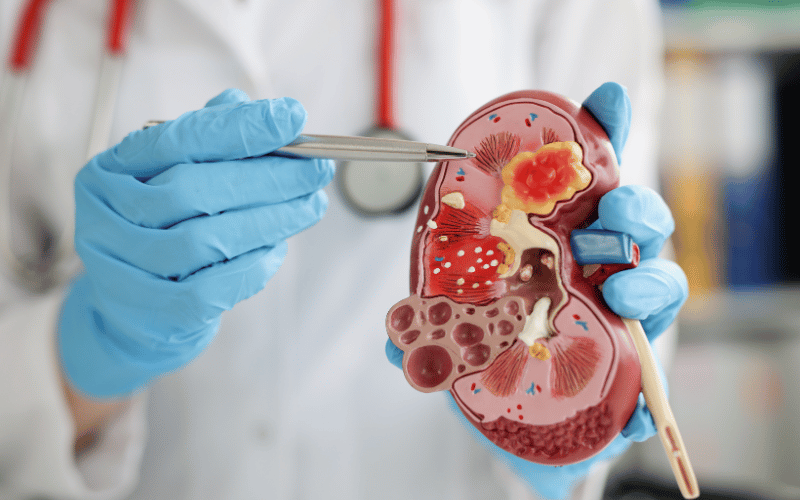Frequently Asked Questions About Kidney Infections (Pyelonephritis)

What are the early signs and symptoms of a kidney infection?
Early signs and symptoms of a kidney infection may include fever, chills, lower back or flank pain, abdominal pain, frequent urination, a strong, persistent urge to urinate, and cloudy, dark, bloody, or foul-smelling urine. If you experience any of these symptoms, it’s essential to seek medical attention promptly to prevent complications.
How is a kidney infection diagnosed?
A kidney infection is typically diagnosed through a combination of medical history, physical examination, and laboratory tests. Urine tests can help identify the presence of bacteria and white blood cells, while blood tests can check for signs of infection. Imaging tests, such as ultrasounds or CT scans, may also be used to visualize the kidneys and urinary tract, allowing healthcare providers to identify any abnormalities or obstructions.
What is the treatment for a kidney infection?
Kidney infections are usually treated with antibiotics, which help eliminate the bacteria causing the infection. Depending on the severity of the infection, oral or intravenous antibiotics may be prescribed. In some cases, additional treatments, such as pain relievers, fever reducers, or hospitalization, may be necessary.
Can a kidney infection cause long-term damage?
If left untreated, a kidney infection can lead to serious complications, such as kidney scarring, kidney failure, or sepsis (a life-threatening infection that can spread throughout the body). Prompt treatment is crucial to minimize the risk of long-term damage.
How can I prevent kidney infections?
To prevent kidney infections, practice good personal hygiene, maintain a well-balanced diet, stay well-hydrated, and take steps to address any risk factors or underlying conditions that may predispose you to kidney infections. Regular checkups with your healthcare provider can also help detect and address any urinary tract issues early on, reducing the risk of kidney infections.
Conclusion: Protecting Your Kidney Health by Understanding Kidney Infections
Kidney infections, or pyelonephritis, can be a serious health issue if left untreated. By recognizing the top 10 causes of kidney infections, you can take proactive steps to reduce your risk and maintain your overall kidney health. Ensuring that you address risk factors such as bacterial infections, urinary tract obstructions, a weakened immune system, and other conditions can go a long way in preventing kidney infections.
In addition to understanding the causes, being aware of the early signs and symptoms of kidney infections is crucial for seeking timely medical attention and treatment. By staying informed and following your healthcare provider’s guidance, you can effectively minimize your risk of developing this serious condition and protect your kidney health in the long run.